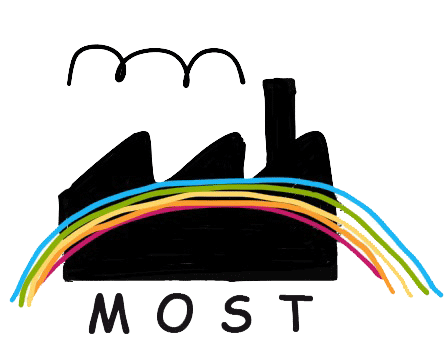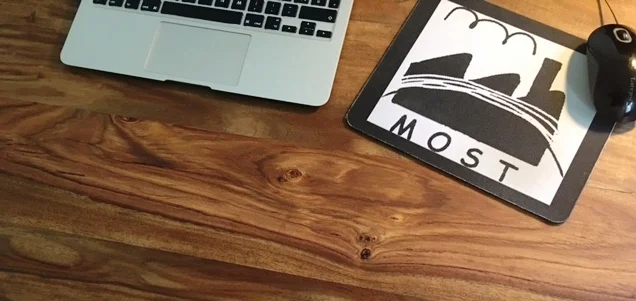“Community projects are not just about will, it is a state of mind”
Project Features
FAIR WEAR FOUNDATION (FWF)
Fair Wear Foundation is an independent, non-profit organisation that works with companies and factories to improve labour conditions for garment workers.
MOST in collaboration with Fair Wear Foundation organizes country seminars with the aim to train brands and suppliers.
The seminars include local stakeholders involvements to guarantee open and wide debates. Previous seminars have been organized in Italy and Portugal.
Following these seminars MOST creates Country Study Risk Assessments with particular attention to migrant workers, contract workers, illegal compensations, health & safety and subcontracting risks.
Mapping your supply chain
Fashion supply chain is very complex and “long”, many factories and subcontractors are involved in the entire manufacturing process. Brands are not always aware of the existence of undisclosed subcontractors or movements of their products. Home-workers are also very often involved in manual operations such as embroidery raising the risk of lack of adequate monitoring. MOST offers a deep mapping activity on a local basis by understanding all operations involved in the production, evaluating capacity vs. man-force and assessing the risk of undisclosed subcontractors. Understanding where your products are and who is working on them at all times it is the best way to protect your brand.
training suppliers
MOST team provides training to suppliers to ensure the understanding of the audits scope and process. Awareness and participation to social compliance standards is a key to successful audits. Through training suppliers will have an understanding of the brands requirements, its application and implementation. Interactive training and guidelines are helpful for management to prepare an assessment.
In the past year MOST provided training for the suppliers of our clients in Hungary, Italy and Portugal.
Living wage assessments
The living wage should be earnedin a standard working week (no more than 48 hours) and allow a garment worker to be able to buy food for themselves and their families, pay the rent, pay for healthcare, clothing, transportation and education and have a small amount of savings for when something unexpected happens.
The International Labour Organisation (ILO) has defined a living wage as a basic human right under their conventions and recommendations to the Universal Declaration of Human Rights Article 23. (ILO Conventions 95 and 131, ILO Recommendations 131 and 135).
Wages and benefits paid for a standard working should meet at least legal or industry minimum wage standards and always be sufficient to meet basic needs of workers and their families and to provide discretionary income.
The lack of a living wage means many garment workers are forced to work long hours to earn overtime or bonuses and cannot risk taking refusing work due to unsafe working conditions or taking time off due to ill health. The low wages mean that workers often have to rely on loans just to make ends meet and have no savings to use if they find themselves out of work.
MOST is conducting living wage assessments in Europe based on Fair Wear Foundation standards Living Wage Portal and ILO standards.
Portugal minimum wage is 589,17 Euro, the living wage in the country has been estimated being at least 900 Euro (outside Lisbon and Oporto).
Romania minimum wage is 217,50 Euro, the living wage in the country has been estimated being at least 500 Euro (outside the capital city).
Bulgaria minimum wage is 184,07 Euro, he living wage in the country has been estimated being at least 500 Euro (outside the capital city).
And if you believe that in Italy Living Wage is a reality please read this report and you might reconsider..
Clean Clothes Campaign - can you earn a living wage in fashion in Italy
traceability
The ability to identify and trace the history, distribution, location and application of products, parts and materials, to ensure the reliability of sustainability claims, in the areas of human rights, labour (including health and safety), the environment and anti-corruption.
MOST encourages brands to develop more sustainable practices through the supply chain and traceability can help identifying and tracing.
In order to ensure traceability along the supply chain, a system in places is needed which “records and follows the trail as products, parts, and materials come from suppliers and are processed and ultimately distributed as end products”. Such traceability systems provide information on the components of products, parts, and materials as well as information on transformations throughout the value chain. Ultimately, traceability ensures the accuracy of this information, such as product quality, safety and labeling.
MOST staff has conducted traceability assessments through the leather supply chain in Italy.
More information related to the leather market available here:
Labour behind the label - a tough story of leather
Traceability is also fundamental when assessing animal welfare practices in the farms. Media are paying more and more attention to animal welfare conditions and traceability assessments are helping brands' reputation by assessing breeding and harvesting farms.
MOST staff is also certified to assess traceability in the minerals industry ensuring that minerals are not sourced from conditions of armed conflict ( “conflict minerals” ).
As a fashion brands awareness of the origins of the metals contained in buttons, zippers, fasteners will be soon an obligation.
For more information please read here:
We Wear - Conflict Minerals Guideline
country risk assessment
MOST staff can help brands understanding the labour risks in any European country with specific regards to the Fashion Industry.
- What are the labour conditions in the country?
- What are the current regulations?
- What are the main risks?
- Are the institutions such as trade Unions, Work Council functioning?
We conduct Country Risk Assessment on a regular basis with the support of our local teams.
The Risk Assessment for Italy is available here:

